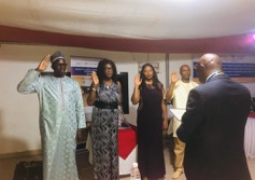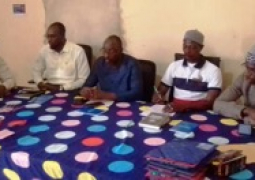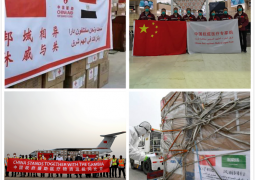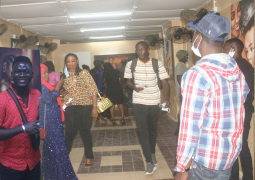
ROOTS was built on the success of NEMA projects that contribute to the development of rice and horticulture, and further seeks to consolidate and scale-climate resilience in rice farming for both up and low lands as well as community vegetable gardens. The International Fund for Agricultural Development (IFAD) injected a sum of $80 million into the ROOTS project.
The project is also aimed at improving food security, improving nutrition and enhancing small holder farmer’s resilience to climate change. It will be implemented in five administrative regions including Central River, North Bank, Lower River, West Coast and Upper River regions.
It will cover thirty-nine (39) districts, targeting forty thousand (40,000) households as direct beneficiaries.
In his statement, Dr Dawda Badjie, deputy executive director for NEA said the project's primary objective is to increase agricultural productivity and access to market for enhanced food security and nutrition as well as resilience of family farms and farmers organisations.
“Based on IFAD’s climate risk categorisation, ROOTS is classified ‘high’ and it is also cognisant of the fact that any venture that could have potential negative impacts on the environment in general needs to be addressed accordingly,” he said
Dr. Badjie noted that the development of Environment and Social Management Framework (ESMF) by ROOTS shows a clear testimony to take environmental consideration into any development venture by the ministry and the country at large.
Subsequently, he indicated that the general assessment and management of environmental and social safeguards of development in The Gambia is stipulated in the NEA Act 1994 as well as EIA guideline and procedures 1999.
Mr Badjie expressed optimism that the group of experts in the validation workshop will make a comprehensive scrutiny on the document as well as give comments and recommendations that would improve the report for the benefit of the environment.
Malick Bah, technical service director for NEA described the validation as significant.
The validation, he added, would help in mitigating social and environmental impact on the society, adding that there was a great need for stakeholders to look into the potential negative impacts on the environment to ensure they understood them and put measures in place to overcome them.
“I hope the legal instruments for this project will be critically looked into so that we are able to address the issues as they are categorised in the framework,” he said.
Mamudou Alieu Jagne, project director said the validation would promote sustainable climate resilience, natural resources and economy for the rural people.
He commended NEA for taking the lead on the project and IFAD for providing both technical and financial support.





